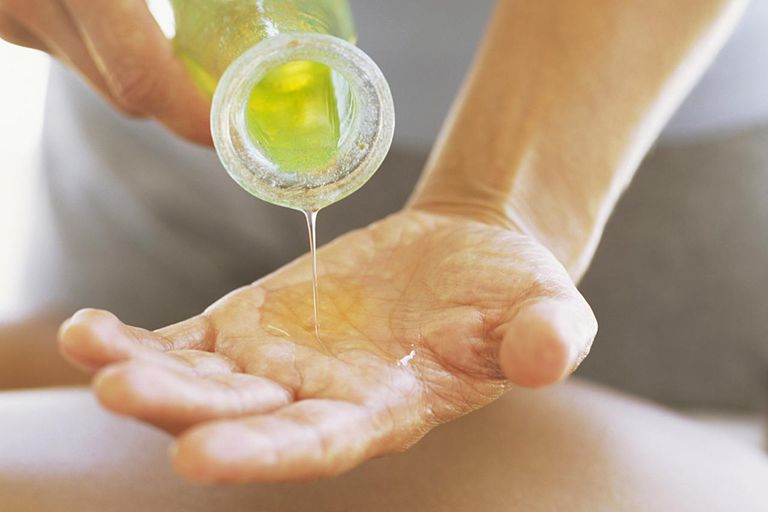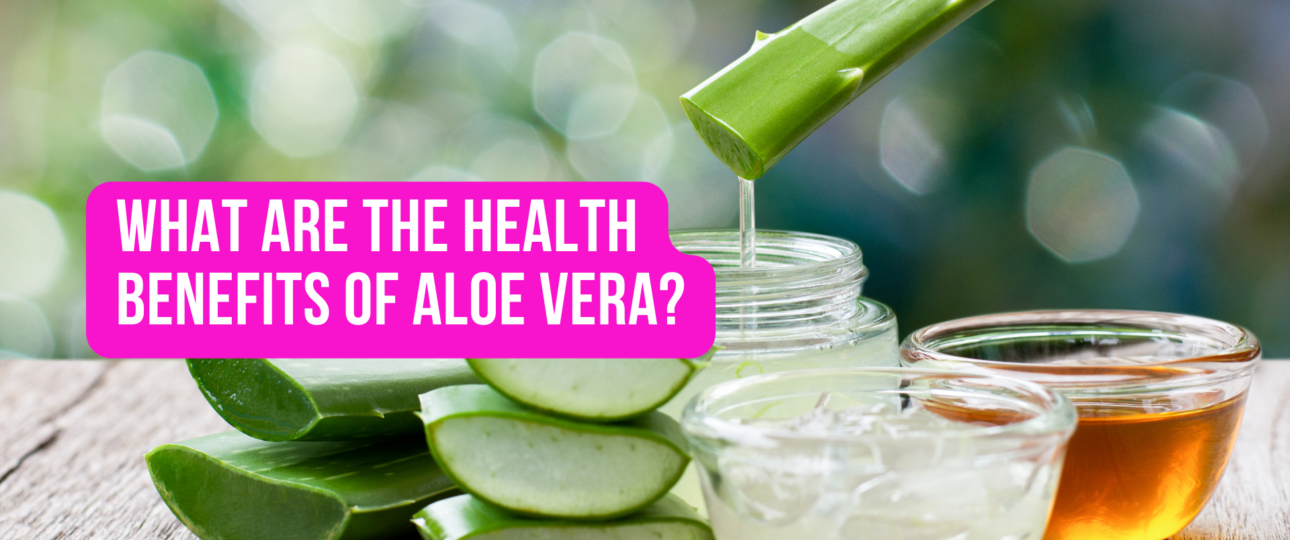
Aloe is a plant originally from Africa. The long, green leaves contain aloe gel and a sticky yellow residue called latex. The gel is the part of the aloe plant used most commonly, both topically and orally. Aloe latex (also known as drug aloe) contains anthraquinone glycosides, constituents that have strong laxative effects, so it is rarely found in commercial laxative products.
Health Benefits
So far, scientific support for the potential benefits of aloe is limited.
1) Burns
One of the most popular uses of aloe vera gel is for healing burns and sunburns.
See natural remedies for burns.
2) Radiation-Induced Skin Reactions
A study published in Current Oncology evaluated an aloe vera lotion for the prevention of radiation-induced dermatitis in 60 people with cancer (breast cancer, pelvic cancer, head and neck cancer and other cancers). People were given the aloe lotion to use on half of the irradiated area, with no medication used on the other half. From week four to week six during radiation and weeks two and four after radiation, the authors found that the areas treated with aloe lotion showed a lower grade of dermatitis than did areas that were not treated.
In a randomized controlled trial, 58 head and neck cancer patients received either oral aloe vera gel or placebo while undergoing radiation therapy.
At the end of the study, oral aloe vera wasn't found to be significantly more effective than placebo in improving tolerance to radiation, mucositis, soreness, and well-being.
Another study looked at whether topical aloe vera gel could help reduce skin redness, pain, itching, and other side effects of radiation compared with a non-aloe cream in 225 patients with breast cancer.
Aloe vera did not significantly reduce radiation-induced skin side effects. The non-aloe cream on the other hand, helped to reduce pain and dry skin peeling.
3) Ulcerative Colitis
A randomized controlled trial looked at the effectiveness and safety of aloe vera gel for the treatment of mild to moderately active ulcerative colitis. Forty-four people were given either oral aloe vera gel or placebo (100 mL twice a day for 4 weeks in a 2:1 ratio). At the end of the 4 weeks, oral aloe vera produced clinical and histological improvement more often than placebo.
Find out about other Natural Remedies for Ulcerative Colitis.
4) Psoriasis
Aloe vera gel has also been used for psoriasis, however, studies haven't shown it's effective for this skin condition. For example, in a randomized, controlled trial, 41 patients with stable plaque psoriasis took applied aloe vera gel or placebo. The researchers found that aloe vera gel was not better than placebo.
Get the scoop on natural remedies for psoriasis.
Why Do People Use It?
Topical Uses
- Burn healing
- Wound healing
- Sunburn
- Radiation-induced skin reactions
- Genital herpes
- Psoriasis
Oral Uses
- Ulcers
- Diabetes
- Crohn's disease
- Ulcerative Colitis
- Immune Support
- Constipation
Caveats
Aloe gel - Occasional allergic reactions may occur.
More research on the safety of aloe needs to be done.
Aloe gel should not be used for severe burns or wounds. People should seek immediate medical attention instead.
The safety of aloe in children, pregnant or nursing women, or people with liver and kidney disease has not been established.
Aloe latex - People with intestinal disorders should not use aloe latex.
Overdose of aloe latex can cause dehydration, electrolyte imbalance, red urine, severe diarrhea, kidney dysfunction, and possibly death.
Aloe latex is not recommended for use internally for longer than 10 days because it can cause laxative dependency.
Long-term use of aloe latex may cause potassium deficiency and result in irregular heartbeat and weakness.
Aloe latex should not be taken internally if you are taking the following drugs: digoxin, diuretics, steroids, drugs for irregular heartbeat, and drugs that cause potassium loss.
Aloe taken orally may cause blood sugar levels to become too low, especially if combined with blood sugar medications.
Aloe appeared to interact with the general anesthetic sevoflurane in one report.
A preliminary study involving 18 people found that aloe vera increased the absorption of vitamins C and E.
Supplements haven't been tested for safety and due to the fact that dietary supplements are largely unregulated, the content of some products may differ from what is specified on the product label. Also keep in mind that the safety of supplements in pregnant women, nursing mothers, children, and those with medical conditions or who are taking medications has not been established. You can get tips on using supplements here, but if you're considering the use of aloe supplements, talk with your primary care provider first.
Sources
Salty Vixen Stories & More uses only high-quality sources, including peer-reviewed studies, to support the facts within our articles. Read our editorial process to learn more about how we fact-check and keep our content accurate, reliable, and trustworthy.
Haddad P, Amouzgar-Hashemi F, Samsami S, Chinichian S, Oghabian MA. Aloe Vera for Prevention of Radiation-Induced Dermatitis: a Self-Controlled Clinical Trial. Curr Oncol. 2013 Aug;20(4):e345-8.
Vinson JA, Al Kharrat H, Andreoli L. Effect of Aloe Vera Preparations on the Human Bioavailability of Vitamins C and E. Phytomedicine.(2005) 10:760-5.
Vermeulen H, Ubbink D, Goossens A, de Vos R, Legemate D. Dressings and Topical Agents for Surgical Wounds Healing by Secondary Intention.Cochrane Database Syst Rev. (2004)2:CD003554.
Richardson J, Smith JE, McIntyre M, Thomas R, Pilkington K.Aloe Vera for Preventing Radiation-Induced Skin Reactions: a Systematic Literature Review. Clin Oncol (R Coll Radiol). (2005) 17(6):478-84.
Paulsen E, Korsholm L, Brandrup F.A Double-blind, Placebo-controlled Study of a Commercial Aloe Vera Gel in the Treatment of Slight to Moderate Psoriasis Vulgaris. J Eur Acad Dermatol Venereol. (2005)19(3):326-31.
Su CK, Mehta V, Ravikumar L, Shah R, Pinto H, Halpern J, Koong A, Goffinet D, Le QT. Phase II Double-blind Randomized Study Comparing Oral Aloe Vera Versus Placebo to Prevent Radiation-related Mucositis in Patients with Head-and-Neck Neoplasms.Int J Radiat Oncol Biol Phys. (2004)60(1):171-7.
Langmead L, Feakins RM, Goldthorpe S, Holt H, Tsironi E, De Silva A, Jewell DP, Rampton DS.Randomized, Double-blind, Placebo-controlled Trial of Oral Aloe Vera Gel for Active Ulcerative Colitis.Aliment Pharmacol Ther. (2004)19(7):739-47.
Yeh GY, Eisenberg DM, Kaptchuk TJ, Phillips RS.Systematic Review of Herbs and Dietary Supplements for Glycemic Control in Diabetes. Diabetes Care. (2003) 26(4):1277-94.
Heggie S, Bryant GP, Tripcony L, Keller J, Rose P, Glendenning M, Heath J.A Phase III Study on the Efficacy of Topical Aloe Vera Gel on Irradiated Breast Tissue.Cancer Nurs. (2002)25(6):442-51.




















